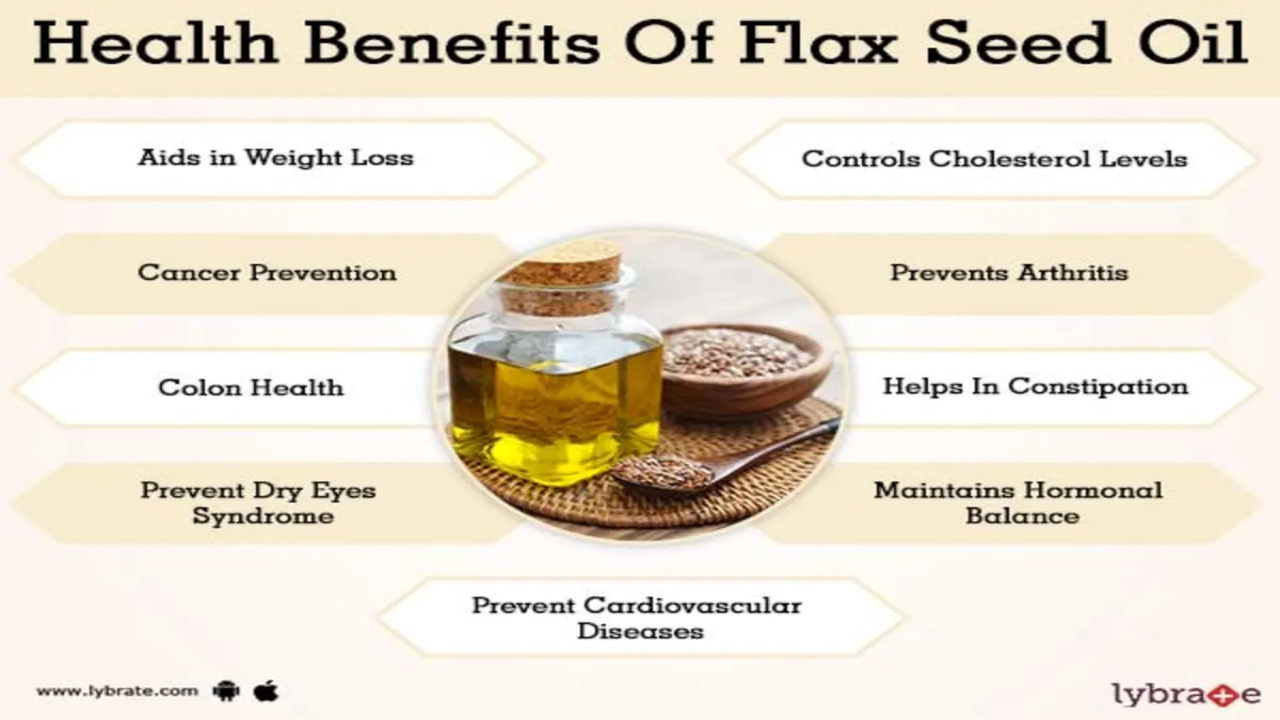Flaxseed oil, derived from the seeds of the flax plant (Linum usitatissimum), has gained popularity in recent years due to its potential health benefits. Packed with essential nutrients and a rich source of omega-3 fatty acids, flaxseed oil offers a range of advantages for overall well-being. In this article, we will explore the benefits, uses, and potential side effects of flaxseed oil.
Benefits of Flaxseed Oil

Omega-3 Fatty Acids: Flaxseed oil (linfröolja) is one of the best plant-based sources of omega-3 fatty acids, particularly alpha-linolenic acid (ALA). Omega-3 fatty acids are crucial for brain health, reducing inflammation, and supporting heart health.
Improved Cardiovascular Health: Numerous cardiovascular benefits have been associated with the consumption of flaxseed oil, primarily due to its rich content of omega-3 fatty acids. These essential nutrients play a significant role in reducing blood pressure, lowering levels of harmful cholesterol (LDL), and mitigating the risk of developing heart disease.
Skin Health: Flaxseed oil contains antioxidants and anti-inflammatory properties that may benefit the skin. Regular consumption or topical application of flaxseed oil may help alleviate skin conditions like eczema, psoriasis, and acne.
Digestive Health: Flaxseed oil acts as a natural laxative and can promote regular bowel movements. It can help relieve constipation and improve overall digestive health.
Hormonal Balance: The lignans found in flaxseed oil have estrogen-like properties and may help regulate hormonal balance in the body. This can be particularly beneficial for women experiencing symptoms of menopause or hormonal imbalances.
Uses of Flaxseed Oil

Dietary Supplement: Flaxseed oil is commonly used as a dietary supplement to boost the intake of omega-3 fatty acids. It can be consumed directly or added to foods like smoothies, salad dressings, or yogurt.
Cooking: Flaxseed oil has a low smoke point, making it unsuitable for high-heat cooking. However, it can be used as a flavorful addition to cold dishes, such as drizzling it over salads or cooked vegetables.
Skin and Hair Care: Flaxseed oil can be applied topically to moisturize and nourish the skin. It is often used in skincare products, such as lotions, creams, and oils. Similarly, it can be used to promote healthy hair by applying it directly or adding it to hair masks or conditioners.
Vegan Omega-3 Source: Flaxseed oil is an excellent alternative for individuals following a vegan or vegetarian diet, as it provides a plant-based source of omega-3 fatty acids.
Side Effects of Flaxseed Oil

Gastrointestinal Issues: Consuming excessive amounts of flaxseed oil may cause diarrhea, bloating, or abdominal discomfort. It is recommended to start with small doses and gradually increase intake to avoid these issues.
Increased Bleeding: Flaxseed oil has blood-thinning properties due to its omega-3 content. Therefore, individuals taking blood thinners or with bleeding disorders should exercise caution and consult a healthcare professional before using flaxseed oil.
Allergic Reactions: Some individuals may be allergic to flaxseed oil. Allergic reactions can manifest as skin rashes, hives, itching, or difficulty breathing. If any allergic symptoms occur, immediate medical attention should be sought.
Oxidation: Flaxseed oil is prone to oxidation and can become rancid quickly if not stored properly. It should be kept in a dark, cool place and consumed within the recommended shelf life.
In conclusion, flaxseed oil offers numerous benefits for overall health, particularly as a source of omega-3 fatty acids. From promoting heart health to improving skin conditions and aiding digestion, its versatile uses make it a valuable addition to one’s diet and skincare routine. However, it is essential to be mindful of potential side effects and consult a healthcare professional before incorporating flaxseed oil into your daily regimen.
